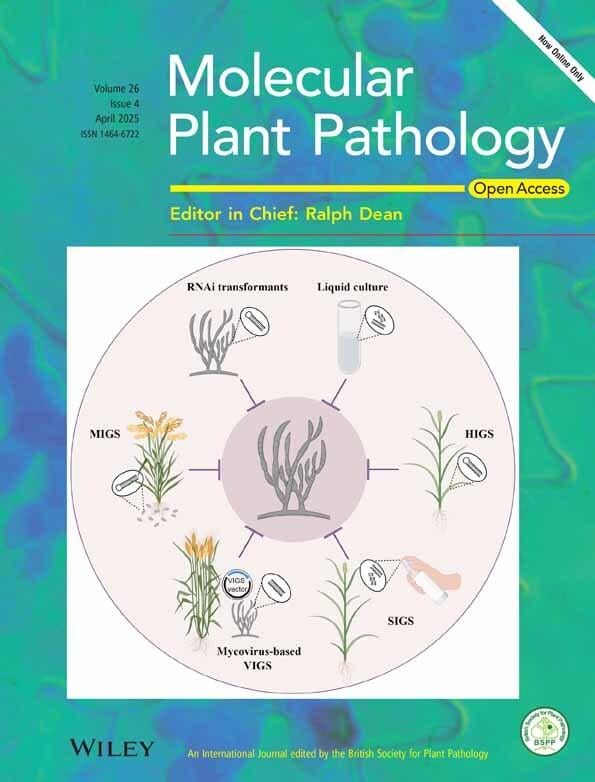Hello {{first_name | Robigalia Reader}},
Welcome to another week of Robigalia.
If you’re new here, Robigalia is your weekly roundup of the latest research, researchers, scholarships, and opportunities in plant pathology globally.
Before we dive in, I need your help (please?) …

I have been running the Robigalia newsletter for a little over a year now, and recently set up a new subscriber survey.
Thank you to everyone who has responded to the survey! From your feedback, you’re loving the weekly job and opportunity listings. And you’d love to hear more from researchers from different career stages.
If you haven’t had the chance to fill in the form because you’ve been a subscriber since before the surveys started, I want to know what you like most, and what you would want to add/change about the newsletter. You can submit your responses here:
This week, we learn about the interplay between plant regeneration and defence. I introduce Naushin Alim Payel, a recent graduate researching biological control of bacterial wilt in tomato. Make sure you’re a subscriber to also access the latest PhD and opportunities, and events.
Weekly Plant Pathology Highlights
Research Student of the Week
⭐ Meet Naushin Alim Payel ⭐
This week, I’m happy to introduce Naushin Alim Payel, a recent graduate from Bangladesh Agricultural University.
Naushin’s research has focussed on the biological control of the bacterial wilt pathogen Ralstonia solanacearum, a devastating and widespread pathogen in Bangladesh. Growing up in the coastal regions of Bangladesh, Naushin saw firsthand the destruction of farmland as the result of plant pathogens, and the devastation this caused for farmers. This served as a source of inspiration for Naushin to become a plant pathologist, to enable her to diagnose disease and provide innovative solutions.
During her research, Naushin prepared organic compost and vermicompost enriched with rhizospheric bacteria to control R. solanacearum, and assessed the viability of antagonistic bacteria against the pathogen. Her results showed applying the bio-enriched compost and vermicompost significantly increased the plant's yield and reduced the disease severity in tomatoes.

Naushin feels an immense sense of pride in her research, and considers it a success in the fight against R. solanacearum. Using an innovative approach, she believes incorporating organic fertilisers into soils can not only improve the soil quality but also reduce the severity of this disease at a lower cost.
Now, Naushin is currently seeking a scholarship for a Master's program to enhance her knowledge in plant pathology. She then plans to pursue a PhD to provide her with the opportunity to join a research organisation as a scientist.
If you want to find out more about Naushin’s research, you can reach her via email or post your questions in the comments.
Scholarships and Jobs
New opportunities below are indicated by two asterisks at the start of the entry **


